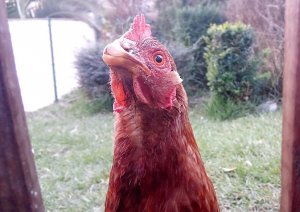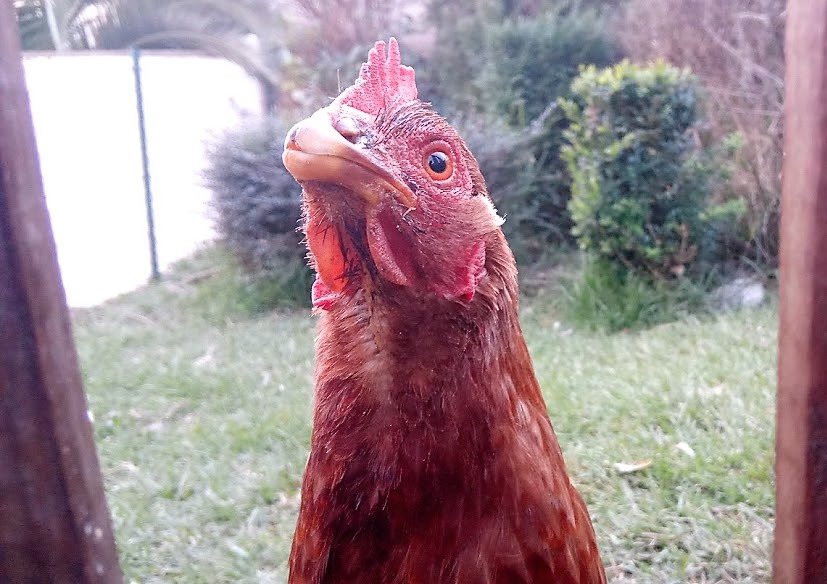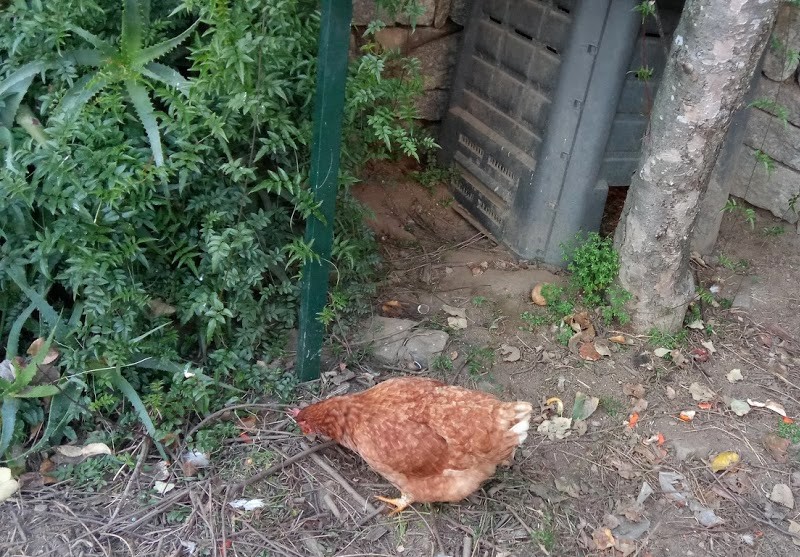At the André Soares Basic School of the 2nd and 3rd cycles in Braga, a mathematics and natural sciences teacher, and also the coordinator of Eco Schools project, has decided to buy a household composter 5 years ago to reduce the accumulation of garbage.
The aim of this initiative was essentially to reduce the amount of garbage that is sent to landfills as the composting process is less polluting to the environment since carbon dioxide, water and biomass are formed not occurring the formation of methane gas which is very polluting, such as would occur in landfills.
However, the teacher found that the practice of the composting process had the disadvantage of unpleasant smells, insects gathering and it attracted rodents.
He thought of an alternative solution and as a result he got a chicken and made his former composter a hen house. He did not give up his garbage reduction project, however, this alternative would have to be more feasible.
In his opinion the chicken could bring some advantages, as it processes all organic matter and its excrements would serve as fertilizer. In addition, this “flying composter” also lays eggs, which is useful for the family meals. This chicken feeds on grass, avoiding the need to cut it and also promoting soil fertilization.
This experience was very successful, since the animal has become a company for the family members as well as a great contribution to the weekly waste reduction that was usually sent to landfills.
Every week, combined to the sorting for ecopoints, this teacher started to send only a garbage bag to the bin unlike the previous domestic waste production that was much larger (around 6/7 bags).
However, the chicken needs to be taken care of when all the members of the family are on holiday, a situation that has been overcome with the help of relatives.
Sharing this idea can raise awareness of the importance of preserving the environment and at the same time help finding intelligent alternatives to change incorrect lifestyle habits that put the ecosystem at risk.





You must be logged in to post a comment.